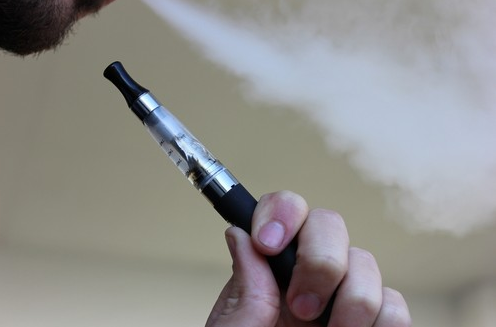CBD Oil Vaping as a Tool to Quit Smoking
Some people who have already tried to quit smoking, as well as some experts in the field of tobacco addiction, often joke that cigarettes create as strong a psychological attachment as opiates. Unfortunately, there is some truth to this joke: as various studies on smoking cessation have shown, the vast majority of smokers require more than three attempts to finally quit cigarettes. Researchers note that even though some people can resist the psychological urge to smoke for short or medium periods, in the long run, many smokers return to their harmful habit. Another study claims that, based on long-term observation of a large sample of tobacco smokers, the average cigarette user may need more than 30 attempts to quit before they can break the psychological dependence that draws them back to smoking.
In other words, quitting smoking without pharmaceutical aids is a difficult and lengthy process. However, as medical professionals have noted in recent years, CBD—a major therapeutic component found in the cannabis plant—may be a safe and accessible tool that can significantly simplify and speed up the process of quitting cigarettes. According to researchers, regularly vaping CBD extract allows smokers to noticeably reduce their daily tobacco use, eventually helping them quit the habit altogether.
But is CBD really the long-awaited cure for tobacco addiction? To answer this question, let’s look at two studies on the topic conducted by a team of scientists from University College London.
Vaping CBD Reduces the Urge to Smoke Cigarettes
For the first time, scientists at University College London examined the relationship between CBD vaping and the urge to smoke tobacco in 2013, deciding to conduct a laboratory study of this phenomenon. In this experiment, 24 people participated, divided into two groups. To compare the effects of the substance on participants, one group received a vaporizer with a harmless placebo, while the other group regularly used CBD extracts.
During the week-long trial, volunteers were instructed to use the vaporizer every time they felt the urge to smoke. Essentially, they were not required to reduce their usual smoking routine; instead, cigarette smoking was replaced with the use of a vaporizer containing plant oils.
After a week, the control group reported that the placebo did not help reduce their craving for cigarettes, and they smoked the usual number of cigarettes for that period. However, participants in the other group noted that, on average, using CBD helped them reduce the number of cigarettes smoked by about 40%. A subsequent experiment confirmed these findings and provided scientists with additional information about the nuances of tobacco addiction and CBD’s ability to suppress the urge to smoke.
CBD Shifts Attention Away from Smoking
In their next study, researchers found that thanks to its sedative effects, which have a calming influence on the human psyche, CBD was able to suppress the nervous impulses that cause psychological discomfort and drive the body to seek substances to relieve such feelings.
This experiment involved 30 volunteers who had not previously undergone any smoking cessation therapy. They were divided into two groups and were prohibited from smoking in the evenings during the experiment. In the morning, one group received a tablet containing 800 milligrams of CBD, while the control group received a placebo. Each day, after this procedure, volunteers were shown various images depicting tobacco use, while their blood pressure, heart rate, and subjective craving for cigarettes were measured.
While the researchers did not find significant differences in the volunteers’ subjective desire to smoke, they did observe a noticeable reduction in the physiological response to the images: although all participants equally wanted to smoke, after a single dose of CBD, their bodies reacted with less tension to the craving.
Based on these observations, Dr. Tom Freeman, a senior academic at King’s College London who collaborated with the research team, suggests that they have found a safe and easy-to-use substance, free of nicotine, that can be used to suppress the psychological urge to smoke. “I am confident that this substance can be extremely effective not only in the therapy of tobacco addiction itself but also in helping people avoid cigarettes in the future. Reducing the body’s stress response in situations that trigger the urge to smoke significantly increases a person’s chances of resisting such impulses,” the doctor suggests.
CBD in Tobacco Addiction Therapy
Although further research is needed on the use of CBD in smoking cessation therapy, many medical professionals, based on these studies, believe that when combined with psychological therapy, cannabinoid use can be a highly effective tool for treating tobacco addiction.
“Although the substance itself only suppresses, rather than completely eliminates, the psychological urge to smoke, I believe that together with the right mental attitude and the help of a therapist, CBD can greatly simplify and shorten the process of quitting cigarettes,” says Dr. Yasmin Hurd, head of the Addiction Institute at Mount Sinai Hospital in New York.
Accordingly, as in the study, you can use a vaporizer filled with CBD oil extract to suppress the urge to smoke. As in the experiment, the device should be used every time you feel an overwhelming craving for tobacco. It’s recommended to use CBD in this way first thing in the morning to mentally prepare yourself to use the vaporizer whenever the desire for nicotine arises. Combined with the right mindset for quitting, substituting tobacco with a vaporizer can make the process faster, easier, and less painful.
Given that research into the use of CBD and other cannabinoids in tobacco addiction therapy is ongoing, it is possible that, over time, scientists will be able to develop a reliable smoking cessation medication based on cannabis extracts.



